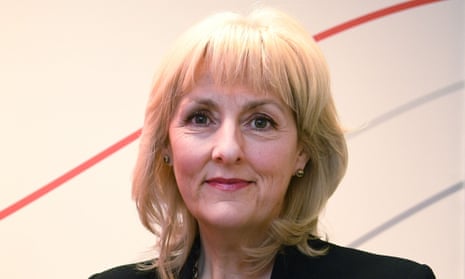Angry MPs have demanded further action against antisemitism after Labour revealed it has investigated 673 alleged cases and expelled 12 party members since last April.
The party revealed the figures in an email to MPs, and suggested no earlier figures could be compiled because there was “no consistent and comprehensive system for recording and processing cases of antisemitism”.
However, the party’s former general secretary Iain McNicol disputed that claim in a private meeting with Labour MPs on Monday night, saying such a system had been in place. MPs who met for the weekly parliamentary Labour party meeting suggested they would demand that the Labour leadership return to answer questions about the criteria for judging cases.
Margaret Hodge was among the MPs who questioned the statistics after the meeting, saying she alone had submitted more than 200 examples of “vile antisemitism” where she believed the evidence showed they had connections with Labour. “There has been a breakdown in trust,” the veteran MP said.
Releasing the disciplinary data for the first time, the party’s general secretary, Jennie Formby, said 96 members had been suspended and 211 had been issued with a notice of investigation. Another 146 had been given a preliminary warning and 220 cases did not have sufficient evidence to proceed.
MPs will demand at next week’s meeting that the party spell out why many members were deemed to deserve only a preliminary warning, and the criteria by which they were judged.
The Labour MP Catherine McKinnell, who submitted a motion last week calling for more transparency on antisemitism cases, said she hoped for more clarity on how officials had decided which cases should receive a “reminder of conduct”, which leads to no further action.
“It begs the question: what criteria is being used if that is how an investigation is resolved? There are still a lot of questions that need to be answered,” she said.
The data suggests that among the 307 cases where members were investigated or suspended, decisions have been made by Labour’s governing national executive committee (NEC) in around a third of them, and more than 40 members left the party of their own volition.
Forty-two members have been referred to Labour’s highest disciplinary body, the national constitutional committee (NCC), the only panel with the power to expel members.
Nineteen cases are currently outstanding from that committee. So far, the NCC has expelled 12 members and six have received other sanctions. Five have left the party of their own accord.
Formby said the party had previously been of the view that disciplinary statistics should remain confidential because of how they could be “misinterpreted or misused for other purposes by the party’s political rivals”. However, she said that because of the “importance of rebuilding trust with Jewish communities” she had pushed NEC officers to agree to the release of the data.
The data also indicates a large number of complaints – more than 400 in total – about non-Labour members.
A Labour party spokesperson said: “These figures relate to about 0.1% of our membership, but one antisemite in our party is one too many. We are committed to tackling antisemitism and rooting it out of our party once and for all.”
Formby said she rejected claims from some quarters that antisemitism allegations were a smear. “I have seen hard evidence of it and that is why I have been so determined to do whatever is possible to eliminate it from the party,” she said. “It is also the reason why I made it a priority to implement robust procedures to deal with it whenever it is identified.”
MPs leaving the meeting on Monday night said they felt deflated. “The bigger issue in all this is a lack of solidarity for Jewish MPs and an expectation of needing to prove everything with the party, rather than support for victims of racism,” one said.
Formby said she had attempted to reopen conversations with Jewish community organisations to rebuild trust over the past few weeks. It is understood she had a private meeting with the president of the Board of Deputies of British Jews, Marie van der Zyl.
Formby suggested there were still some key disagreements upon which Jewish groups felt they could not engage. “I very much hope this will change as I remain absolutely committed to engaging and working together with Jewish community organisations at all times,” she said.
